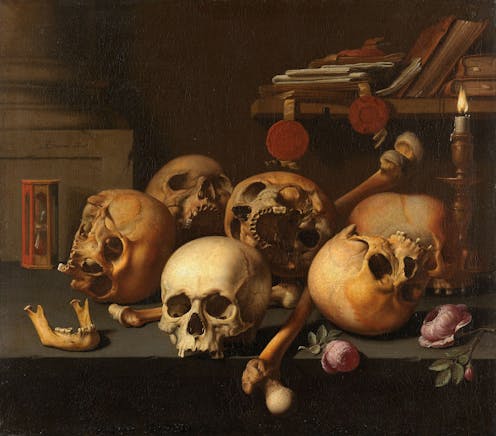in Chinese Postman, Brian Castro transforms fiction into a mechanism of truth
- Written by Tony Hughes-d'Aeth, Professor, Chair of Australian Literature, The University of Western Australia

There was a point in the 1990s where it became fashionable to emphasise that autobiography was fiction. This proposition sprang up to complement an earlier stricture that emerged with the New Criticism of the mid-20th century – namely, that the author of a work of fiction was never the narrator. So, autobiography was always fiction and fiction was never autobiography.
While both ideas had the virtue of interrupting the seductions of biographical essentialism, one comes up against their limitations when reading a book like Brian Castro’s Chinese Postman.
Review: Chinese Postman – Brian Castro (Giramondo)
Castro is the author of 12 critically acclaimed books. These have shown an impressive range and creative daring, from historical fiction (The Birds of Passage, The Garden Book) to postmodern detective fiction (Pomeroy, Double-Wolf) to espionage (Stepper) to verse novel (Blindness and Rage) to autobiography (Shanghai Dancing).
Assigning genres to these books is a little specious. Castro’s books tend only to pay lip service to literary form. Instead, they are postmodern pantomimes that mug the dictates of genre, without ever quite escaping them.
In Chinese Postman, we realise we are getting toward the end of things. Even the puns and the satire, such a persistent feature of Castro’s oeuvre, no longer work to jolt the machinery of social existence into the apparition of life.
The story follows Abe Quinn, a writer and former university professor, now in his mid-70s, who lives alone on a semi-rural property in the Adelaide Hills. At this point, we may as well say that Abe Quinn is Brian Castro, except that someone would helpfully remind us that all autobiography is fiction. As if to underline the arbitrary nature of such matters, the novel switches randomly between the first and third person.
Quinn has been married and divorced three times. He has at last given up on the idea that living with someone can do anything other than accentuate his loneliness. He has withdrawn from the worlds that once sustained him. The literary relationships, the book tours and writing festivals, the university life where he once supervised budding novelists – all of these have lost their savour. They now stare back at him with a sardonic smirk, no longer willing to mask their absurdity, their hopeless vanity.
The name Abe Quinn seems a nod to the famous anti-hero of Lu Xun’s novel The True Story of Ah Q (1922), for whom no amount of humiliation was ever quite enough to puncture his preposterous self-importance. Ah Q was Lu Xun’s damning indictment of China in the 1920s. Castro’s Chinese Postman is a similarly scathing and relentless critique of vanity.
In medieval and early modern painting, vanitas was represented as a skull in the corner. A reminder that the glories depicted in the painting are always limned by the mortality of the world.
In Chinese Postman, vanitas has swollen and enveloped the narrative universe. While Abe is agonised by death’s remorseless desecration of achievement, he is also in love with death. He is in love with its durability and constancy. One gets the feeling that if Hamlet had lived into his 70s, he might look and sound a little like this.
I realise this might not be everyone’s cup of tea, but I found Chinese Postman a quietly riveting book. It is not quite true to say the book is plotless, even though it unfolds in a series of aphoristic paragraphs that seem fragmentary and repetitive.
The main narrative thread comes about through an email correspondence between Abe and a Ukrainian woman in her 40s named Iryna. There is a certain knowing haplessness in this relationship. Does Iryna even exist? Is she a gifted chatbot? The confection of Russian fraudsters?
The epistolary relationship between Abe and Iryna becomes the proxy of his own terminal doubts. The test becomes the extent to which love can be sustained in the face of the possibility that its object does not exist.
In this dialectic between the nihilistic sham of love and its tantalising possibility, Abe finds himself thinking of the fate of Ukraine. Iryna’s grim reports help him to hold onto the idea that his obsession with death is not merely morbid. He is embarrassed and inspired by Iryna’s courage and the resolute defiance of the Ukrainian people.
The fact that Castro’s postman is Chinese brings into relief the other crucial element of the story. This is something that has been a distinctive feature of Castro’s work: the complex cultural inheritance that has inflected his sense of belonging in white Australia.





